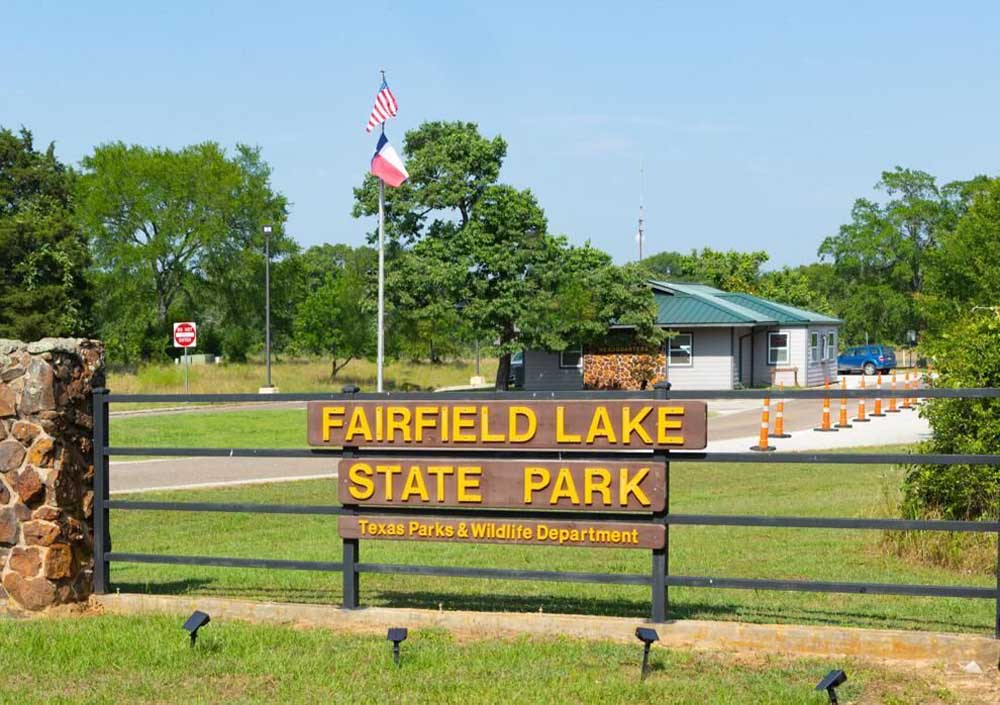Going, Going, Gone: Power company finally pulls plug on Fairfield Lake State Park
Published 3:28 pm Friday, February 17, 2023

- The Texas Parks and Wildlife Department announced it would be closing Fairfield Lake State Park and access to Fairfield Lake on Feb. 28 after negotiations to maintain or expand the park ended.
In the time it takes to send an email, Fairfield Lake State Park is no more.
Luminant/Vistra finally notified the Texas Parks and Wildlife Department that its time is up. The leased land the park sits on, the adjacent lake and additional property belonging to the company are in fact being sold to Dallas-based Todd Interests and the new owners have no interest in partnering with the state. Instead, the developer is planning luxury homes, golf and a trophy fishery, and for $100-million plus and 5,000 total acres why not.
The state officially was given 120 days to vacate the property, but announced last week that the park, along with access to the lake, would close at the end of February.
TPWD, led by Commission chairman Arch Aplin, and state legislators continued putting pressure on both Vistra and Todd Interests up until the last minute either as a way to maintain the existing park or take over the entire site and expand the facility.
The loss of a state park is a first in Texas and comes at a time when the demand for outdoor recreational space has never been greater. Located between Dallas and Houston in Freestone County, the park attracted 82,000 visitors last year.
TPWD has been operating the 2,200-acre park since 1976 when it was given a free lease on the land from then owner TXU. The same arrangement continued with Luminant/Vistra after it took over the site.
Since its opening, TPWD has spent about $70 million in infrastructure on the facility, but was given first notice in 2018 that the property would soon be going on the market after the coal-fired electric generator on the site was shut down. While initially being told the lease would be terminated in October 2020, the state was allowed to continue operation at the site until last summer when the property went under contract. At that point, pending completion of the sale, the state was given a revolving 120-day agreement.
To its credit, TPWD attempted early to purchase the 1,800-acre park site, but the company wanted an all-or-nothing deal. At that time, the department would not have been able to pay for the land. Although state voters had previously approved the Sporting Goods Sales Tax, state legislators were only allowing a small portion of the funds to trickle into the state park fund. It was not until 2019 that voters went back to the polls mandating the agency get all the money as originally intended. While the fund will provide $465 million-plus for parks during this spending cycle, unfortunately it was too late for Fairfield.
In the waning days of efforts to save the park, the political sabre rattling began in Austin. Politicians lined up to voice their disdain with Luminant/Vistra, while looking for loopholes to maintain the land going back to the TXU era when the power industry was regulated by the state.
Now, state Rep. Angelina Orr, whose district includes Fairfield State Park, wants to take back the park under eminent domain. While the intentions may be good, and some say there is a fighting chance the state could win, that idea is almost blasphemy in Texas where 95% of the state is privately owned, and landowner rights are as sacred as the Alamo.
There is also another hitch to this idea if it does not include the lake or access to it, chances are the park will only be a shell of itself. About 39% of the park’s visitors last year were day visits, many of which were headed to the lake.
The lake was also once known for its inland redfish fishery. It was possible because of the salinity level of the water and its year-round warm water temperature. It produced an impressive lake record of 36.83 in 2001.
Since the plant was taken offline, the bass fishery rebounded nicely but was abandoned by TPWD’s Inland Fisheries when it began to appear public access would be lost.
Ownership of the lake would have created an interesting inhouse laboratory for TPWD fisheries biologists, but it would have also carried potential liabilities with repairs.
If there is going to be blame placed for losing a popular state park, it probably should be aimed at the Texas Legislature. Not necessarily this group, but the ones that initially withheld the Sporting Goods Sales Tax funding that kept TPWD from being a real player early in the purchase.
You might even say that it is also the result of the rush in the past to deregulate the power industry, thus losing some levels of oversight.
While there probably is not the potential to lose another park, there is an interesting situation possibly brewing in East Texas at Martin Creek Lake State Park. Also adjacent to another former TXU lake and property currently owned by Luminant/Vistra, the state at least owns the 260-acre park site.
However, if the company ever decides to sell the 5,000-acre lake and other lands cutting off access to the water, the state could come up high and dry with a little park to nowhere.






